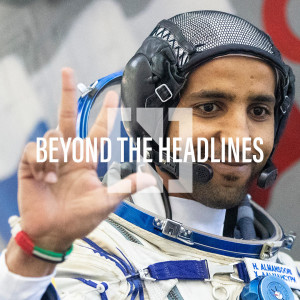
182.7K
Downloads
413
Episodes
Dive deeper into the week’s biggest stories from the Middle East and around the world with The National’s foreign desk. Nuances are often missed in day-to-day headlines. We go Beyond the Headlines by bringing together the voices of experts and those living the news to provide a clearer picture of the region’s shifting political and social landscape.
Episodes

Thursday Sep 26, 2019
Hazza Al Mansouri and the UAE’s space ambitions
Thursday Sep 26, 2019
Thursday Sep 26, 2019
On the 27th of September 2019, Hazza Al Mansouri became the first Emirati to go to space. He did it from Baikonur, Kazakhstan, from the same spot that Yuri Gagarin, the first man in space, started his journey over 58 years ago.
Back then, in the early years of the space race, Cold War rivals The Soviet Union and the United States were in a technological battle to achieve spaceflight capability, in hopes to secure their scientific and symbolic superiority. Yuri Gagarin went into space ten years before the UAE was formed in 1971. Since then 40 more nationalities have left the earth’s atmosphere, the 40th being the UAE. Although few nations have their own technology to make the journey, the desire to take part in humanity’s expedition into the cold, hostile environment is vast, with many nations spending millions of dollars to take part in the privilege. What does space offer them? Why does it capture the human imagination and what does it mean for a nation?
Host Suhail Rather looks at the UAE space programme and where it’s headed. With a human colony on Mars planned for 2117 and a probe headed for the red planet next year we take a look at what Hazza’s mission means for the local population.
Version: 20241125
